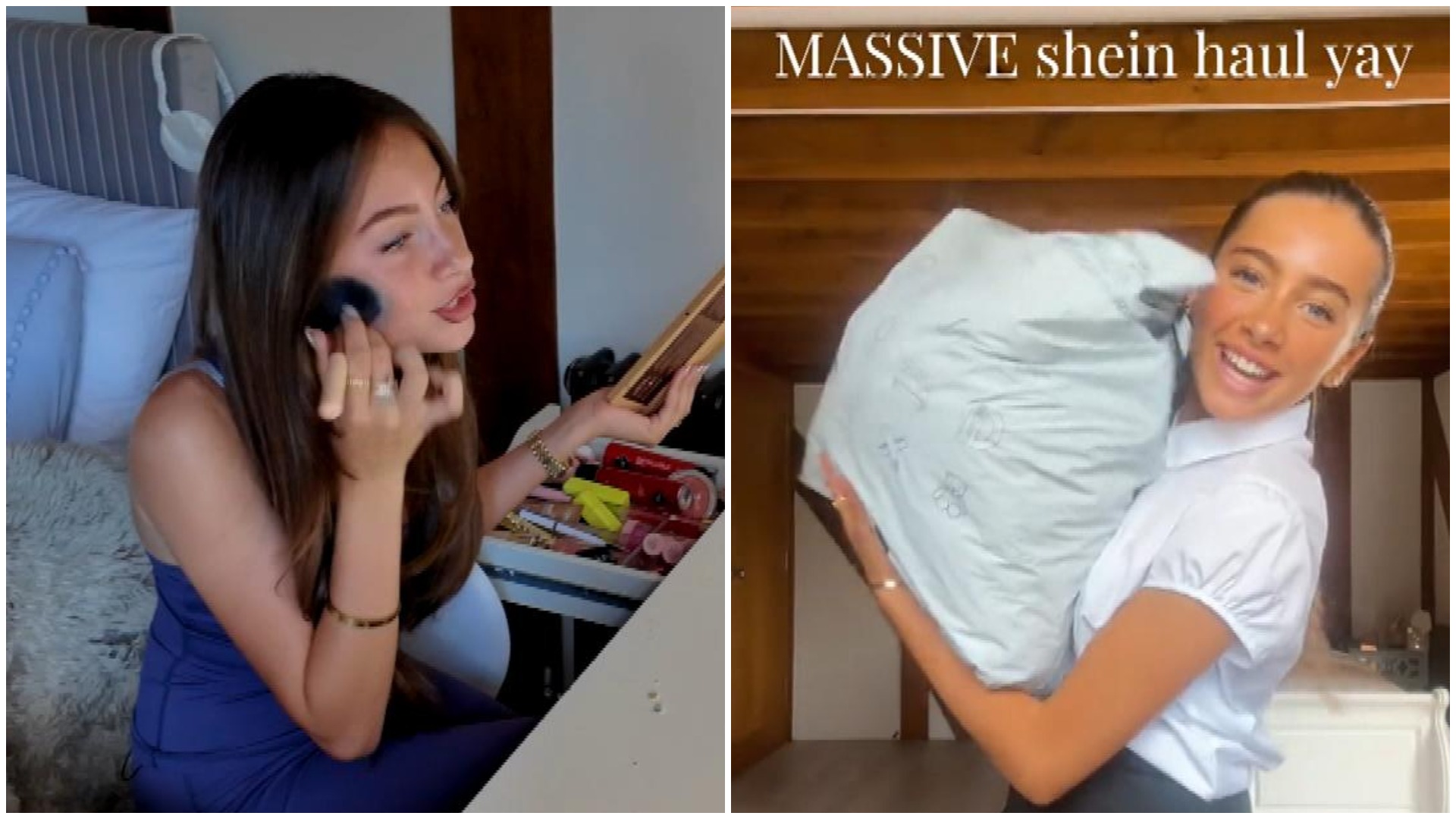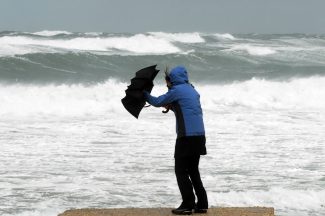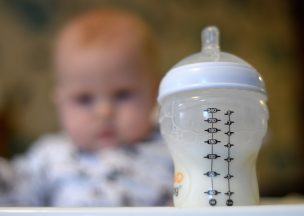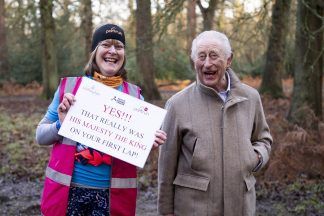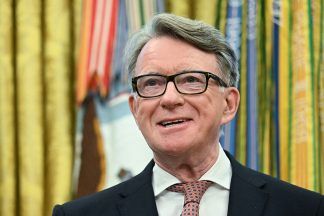ITV News Entertainment Reporter Rishi Davda looks at the darker side of the child-influencing industry
Words by Sarah Toner, ITV News producer
Demi Marcelis was just 12 years old when she began posting videos on TikTok.
Her ‘get ready with me for school’ videos have gained her millions of likes across her account and a loyal following of more than 270,000.
“I just wanted to go for it,” Demi told ITV News. “So one day I made an account and posted a video. At first, it started with quite small likes, but as I just kept posting more and more, the more likes I got and the more viewers.”
Now aged 14, she’s one of many children who aspire to make influencing a future career. The difference is, she’s already doing it.
Demi makes hundreds, sometimes thousands, of pounds through brand collaborations, which require her to promote a product in a video to her audience.
This is an income she’s able to make from the comfort of her home, and before most of her classmates have reached the legal age of working a part-time job.
When she got her first brand deal, Demi realised the potential of what started as just a hobby.
“When my mum first told me, I was like, ‘Oh my God, yay!’
“I was just so happy because I finally got to that point where I not only enjoy it, but I can start making money from it as well, for like a job.”
The money Demi generates goes directly to her mother, Jemma Marcelis, who puts it in a savings account for when she’s older.
“Demi will hate me, but I keep all of her money in an account so when she’s older, she can buy a car, buy a house,” Jemma told ITV News.
“It’s all investment for her future.”
In the UK, there is no law that says parents have to set aside the money their children earn from social media deals, leaving child content creators, or those featured on larger family channels, open to exploitation.
Figures, shared exclusively with ITV News, found that only half (52%) of ‘parent influencers’ (parents of kidfluencers or influencers who feature their children in content) have a dedicated savings account for their child’s earnings.
That’s according to a survey of 25 brand and agency marketing professionals and 100 parent influencers, conducted by Pepper Agency and Influencer Marketing Research.
Moreover, it found that 57% of brands rely on parents to handle the child’s financial compensation.
Demi doesn’t have a filming schedule, but she does film and manage her account, meaning she is in control of the content she posts.
But in the case of parents’ social media accounts, younger children may have little to no say over how their image is used, or if they even want to take part in the first place.
The research found that two-thirds (62%) of parent influencers are not involving their children in decisions around filming, which includes allowing them to say no.
This can create an environment in which children are taking part in commercial content, without knowing, or having private moments filmed and uploaded to social media.
Typically, when a brand agrees to a deal with a content creator, it will come with a brief and a checklist of key phrases or camera shots to include in the video, so it’s not all fun and games when it comes to getting paid.
Demi’s mum, Jemma, admits she does have to encourage Demi to put the work in, especially when brands have a strict deadline.
Jemma told ITV News that Demi’s privacy is a top priority for her
“She has got deadlines,” Jemma conceded.
“Our manager is very good and she will say, listen, she is only 14 years old, but yes, I do have to get on her case, and yes, she’ll give me the eyes.”
The lack of regulation for child-led commercial content extends to children’s privacy and mental well-being.
This is largely because most of this work happens behind closed doors, making it difficult to monitor.
However, the research shows many parents are worried about privacy – 47% said they are concerned that their child may regret being in the public eye later in life.
Jemma said privacy is a top priority for her. She told us she takes posts down if she thinks they are inappropriate or could compromise Demi’s safety.
“She’s been known to post something, I’ve seen it straight away, I don’t even ask Demi, I take it off,” she said.
“It could be something as simple as wearing a school tie, or it could be somewhere out on location where she’s doing a live feed, for example, you may not want people particularly knowing where she is.”
Someone who knows all too well how intrusive internet fame at a young age can be is former kidfluencer Beckii Flint.
Beckii became a YouTube sensation and a household name in Japan when she was just 13 years old.
She started posting videos of herself dancing to Japanese pop music on her account in 2009. They quickly went viral, with one post gaining more than 3.5 million views.
“Little old me, I had like my mobile phone camera and I just decided to get involved and start posting on YouTube,” she told us.
“My YouTube videos went viral in Japan. So many thousands of miles away from home, almost living this kind of like Hannah Montana life between the two.”
But Beckii says her days as a kidfluencer had lasting consequences. She remembers reading unfiltered comment sections on her videos.
“It can be quite difficult to read a lot of really horrible things about yourself, and what can that do to your self-esteem, your self-image?” she said.
Beckii spoke to ITV News about what it was like to be a kidfluencer and the impact it had on her
Her privacy was also often breached by fans trying to get in touch with her.
“Details about where I went to school became quite common knowledge. People were sending packages to my school for me when I was a child,” she said.
Her experiences have led her to create a kidfluencer code for parents and marketing professionals, to help solidify guidance on what should be acceptable when using children for commercial content.
The code highlights mental well-being, financial well-being, privacy, and safety as the main pillars that parents and brands should consider when featuring children.
“These are the four areas that we’ve identified,” she explained.
“If you’re going to show your child, maybe it’s the backs of the heads, maybe blurring faces, using fake names,” she added.
As the demand for kidfluencer content grows, Beckii says this framework is crucial in preventing children from becoming the main earner for a household.
“I think it’s really important to avoid situations in which a child of a social media family is essentially becoming the breadwinner of that family.
“It’s in those extreme instances where the channel and the profiles are doing so astronomically financially well, some channels earning millions of pounds a month.”
With the support of MPs, Beckii is hoping to eventually push some version of the code through parliament.
It’s not the first time MPs have raised the need for guidance on this issue.
In 2022, the Digital, Culture and Sport Committee published a report on influencer culture, calling on the government to strengthen employment and advertising laws to protect children, but no action has been taken.
Gregor Poynton, MP and Chair of the All-Party Parliamentary Group on Children’s Online Safety, says it’s a matter of time before something happens that makes the government take notice.
Gregor Poynton MP said kidfluencing is a real gap in legislation
“My concern is that it will take something incredibly bad happening for it to be taken up, and brought forward,” he told ITV News.
“So that’s why I’m keen to push this before that happens.
“The DCMS select committee in 2022 looked at the influencer culture and identified the kidfluencer piece is a real issue and a real gap in legislation.
“But I think there has not been the drive, really, to take that forward in the previous government and, so far, we’ve not seen that in the new government.”
A government spokesperson said: “We recognise the rise and impact of influencer culture on both traditional and digital media, as well as the potential for children to be exploited as consumers of influencer content and as influencers themselves.
“We will continue to monitor the current frameworks in place.”
Other parts of the world have taken notice of the increasing grey area when it comes to kidfluencers.
In America, some states have passed laws aimed at protecting children and improving their working conditions.
In California, for example, content creators who feature minors in at least 30% of their content are required to deposit 65% of the minors’ gross earnings into a trust account.
The state has also expanded existing child actor laws to include child influencers, ensuring they receive similar protections.
Follow STV News on WhatsApp
Scan the QR code on your mobile device for all the latest news from around the country


